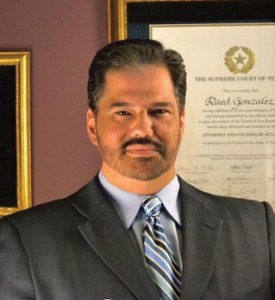Immigration Milestone for Gays

Local man legally married to same-sex partner gets deportation reprieve
by Marene Gustin
The federal government doesn’t recognize same-sex marriages, but at least it’s now starting to consider long-term relationships in deportation cases.
The window cracked open a little in 2011 when the Obama administration instituted a policy giving Immigration and Customs Enforcement (ICE) officials prosecutorial discretion to close cases of illegal immigrants who have deep ties in the U.S. and no serious criminal record.
Then this summer, at the urging of Democratic lawmakers in Washington, D.C., Homeland Security announced that a foreigner’s longstanding same-sex relationship with a U.S. citizen could be considered under prosecutorial discretion to stave off the threat of deportation. Marsha Catron, a spokeswoman for the Department of Homeland Security, said at the time that binational gay couples were eligible for consideration under a federal program designed to focus resources away from low-priority deportation cases and let officials spend more time tracking down hard-core criminals. The door was flung wide open on October 5 of this year when the decision was finalized in written guidelines instructing ICE officials to recognize LGBT families on a case-by-case basis for deportation relief. They don’t even have to be legally married—just in a committed, long-term relationship.
So far, only a handful of these deportation relief cases have been closed nationally, but one of those happened in Houston last month.
After two requests, Mexican national Isaias Gregorio Rivas-Guzman finally got the word that the Houston Office of Chief Counsel was seeking to close his deportation case.
“For the last three years I have lived in fear that my husband would be taken away,” says Wilfred “Fred” Smith, a lab manager in Sugar Land and Rivas-Guzman’s partner. “This means that my life is complete now. We can breathe again.”
Rivas-Guzman had fled his native Mexico in 2004 due to discrimination for being gay. He and Smith met at a church dinner here the following year and have been together ever since. But while traveling in 2009, immigration officials detained Rivas-Guzman, and he has been fighting deportation since then.
“Isaias is from Mexico,” Smith told OutSmart back in February, “and we’re trying to get him citizenship status here, so the attorney thought being legally married might help. We’re hoping the judge will consider it.” But that wasn’t the only reason they married. “It’s the full package. We had talked about getting married for so long. We wanted to do it as a recognition of our love.”
Last year, they tied the knot in Smith’s home state of Massachusetts—one of six states where same-sex marriage is legal. They were married at the Pilgrim Monument, a popular gay wedding locale in Provincetown with spectacular views.

But at first, the marriage license and wedding pictures didn’t seem to help build Rivas-Guzman’s case. The couple’s attorney, Raed Gonzalez, filed two requests for prosecutorial discretion that were met with silence. Finally, in early October, he received an e-mail stating that barring a negative criminal background check, the immigration case would be closed, meaning Rivas-Guzman can legally stay in the U.S.
But that doesn’t mean he automatically becomes a citizen, as would be the case if an illegal were in a heterosexual marriage with a U.S. citizen. So there is still more work ahead for the couple.
“He’s been denied a work permit,” says Smith. “So our next step is to appeal that and then try to get him a driver’s license. He wants to work, and he wants to go to college, but it’s hard for him. Right now he has to take three buses from our home in Sugar Land to the church where he takes English classes.”
One glimmer of hope is that Texas may eventually come around to recognizing same-sex marriages. According to a 2010 University of Texas survey, 63 percent of Texans supported some sort of legal civil union for same-sex couples. Then in September of this year, Austin became the first Texas city to officially endorse same-sex marriage. That city council action was a purely symbolic move since the state only recognizes marriage between a man and a woman, but it was still a step forward.
And now with these ICE rulings, there’s more hope.
“I really do believe there is hope,” Smith says about state recognition of same-sex unions. “Not soon, not with the politicians we have right now, but someday.”
The new Homeland Security guidelines define qualifying same-sex relationships as follows:
Same-sex relationships that rise to the level of “family relationships” are long-term, same-sex relationships in which the individuals are each other’s sole domestic partner and intend to remain so indefinitely; are not in a marital or other domestic relationship with anyone else and typically maintain a common residence; and share financial obligations and assets.
No, it’s not a recognition of same-sex marriages, but it is a step forward that the Department of Homeland Security no longer considers gay immigrants to be a terrorist threat.











Comments